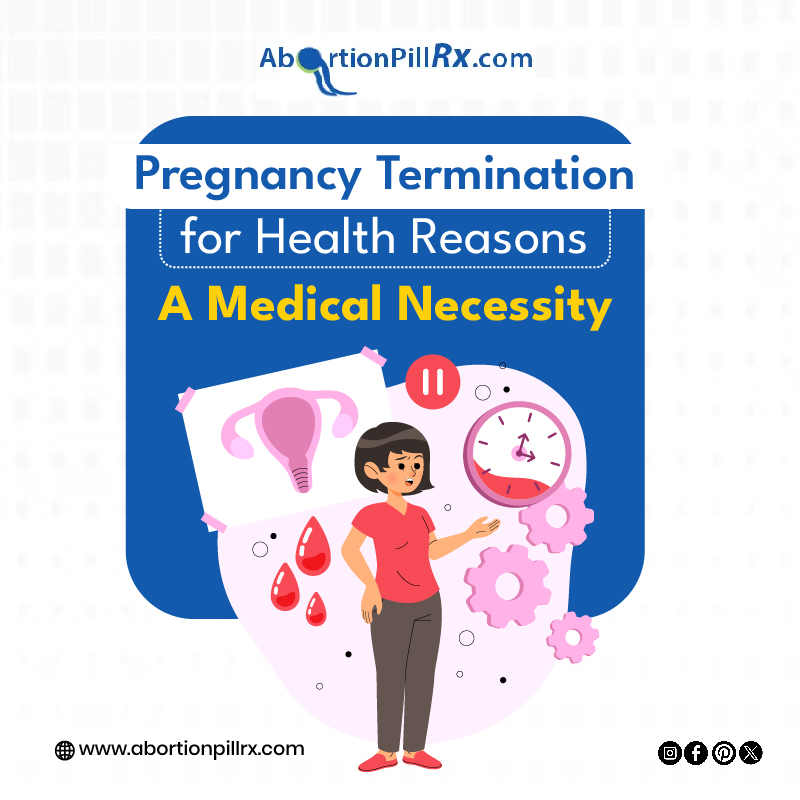Some pregnancies bring joy, while others lead to tough choices. At times, continuing a pregnancy can put a person's health or life at risk, and when a fetus has abnormalities, abortion is not just a choice; it turns into a medical necessity. In such situations, the focus drifts from politics or personal beliefs and centers on health, safety, and survival.
Key Aspects
Some important aspects to understand medical abortions performed for health-related reasons:
- Non-elective: This is medically necessary, not a personal choice.
- Time-sensitive: Health issues can suddenly decline, thus decisions must be made fast.
- Combined choice: This does not remain a personal choice anymore; doctors, specialists, and often a network of individuals can all contribute to it.
- Mental well-being: Psychological and emotional well-being are also taken into consideration, particularly in high-risk or stressful pregnancy situations.
How Safe is Pregnancy Termination for Health Reasons?
Pregnancy termination performed under medical supervision by a professional is extremely safe. The risk of complications during safe abortions, whether they are surgical or based on medicine, is often lower than the risk of complications during childbirth.
Medical abortion in a high-risk pregnancy can prevent severe health-related issues like internal bleeding, organ damage, or worsening of existing health issues. Being able to access medical professionals enhances safety.
What Medical Conditions May Require Pregnancy Termination?
Here are medical conditions that require pregnancy termination:
- Severe preeclampsia or eclampsia
- Ectopic pregnancy
- Heart disease that worsens with pregnancy
- Cancer requiring urgent treatment
- Infections like sepsis
- Life-threatening bleeding
- Pregnancy termination for fetal abnormalities, such as anencephaly or Trisomy 18, where survival is not possible
These are not merely "risks"—they represent genuine threats that could result in death or permanent harm if left unaddressed.
Types of Abortion Used in Medical Situations
Depending on gestation weeks and health conditions, the following methods may be used:
- Medical abortion (using pills like Mifepristone and Misoprostol) for early-stage or stable patients.
- Surgical abortion (D&E or dilation and curettage) for later stages or urgent cases.
- Induction termination for stillbirths or fatal fetal anomalies.
The method used for you depends on the situation of your pregnancy.
Will a Medically Necessary Abortion Affect My Future Fertility?
Most likely, a medical abortion or surgical abortion performed for medical reasons will not affect your chances of conceiving in the future. These abortion procedures are safe for the reproductive system, especially when done early or mid-pregnancy.
However, if you have underlying conditions like untreated infections or implications from high-risk pregnancies, these can all be risks to fertility. Hence, it is essential to have timely, medically supervised abortion healthcare, as it can protect future fertility in many cases.
The Decision-Making Process
Abortion is a difficult decision, particularly when a health issue is involved. The process involved many consultations:
- Doctors or OB-GYNs assess the medical risk.
- Specialists, such as cardiologists or genetic counselors, may offer input.
- Counseling is available for emotional support.
- The patient's wishes are paramount; physical autonomy and consent are always respected.
Legal & Ethical Considerations
Laws around abortion in case of maternal health risk differ globally, and even from state to state. In many states, abortion for medical reasons is legal because it saves lives. However, other areas continue to impose limitations, causing potentially deadly delays.
Ethically, it's about prioritizing the pregnant person's life and health. Nobody should be forced to continue a pregnancy that endangers their life. Medical professionals around the world urge for safe abortion services, particularly in emergencies.
Taking the Time You Need
If you or someone you care about is undergoing a pregnancy termination for health issues, know that it is natural to feel overwhelmed, frustrated, upset, or even relieved. There is no "right" way to feel, and there is no reason to hasten the emotional process.
Healing takes time, and help is available. It's fine to speak to a counselor, spend time with loved ones, or simply breathe.
Conclusion
If you are someone, getting an abortion for medical reasons is not a political subject; it is a matter of health and survival. With the right treatment, pregnancy termination can be both safe and necessary. It is your body, your life, and your right to make the best choices for your health. Always.


